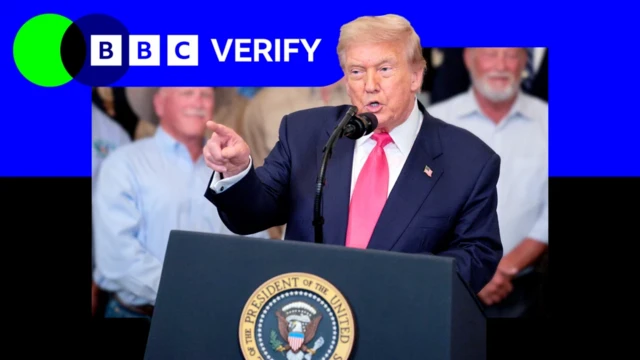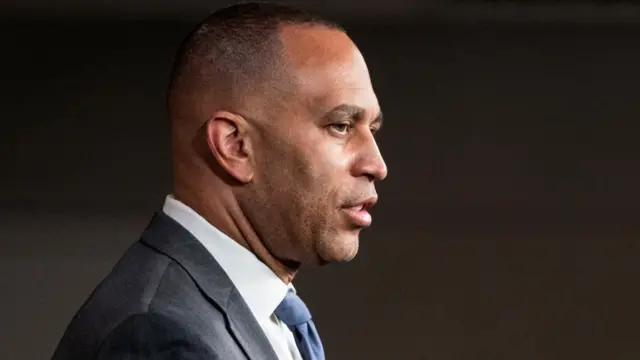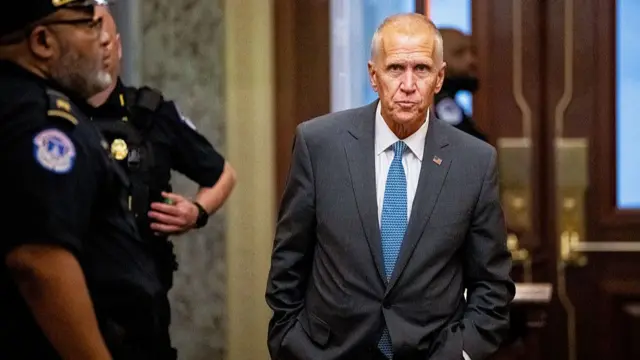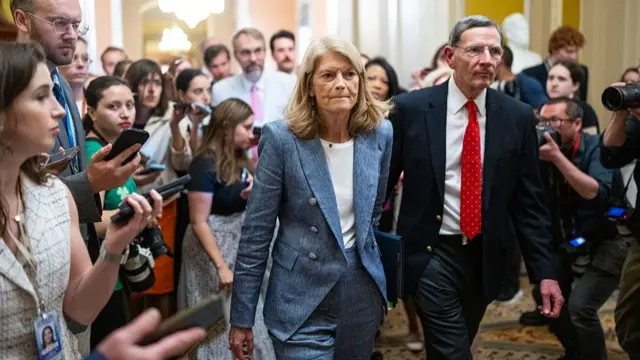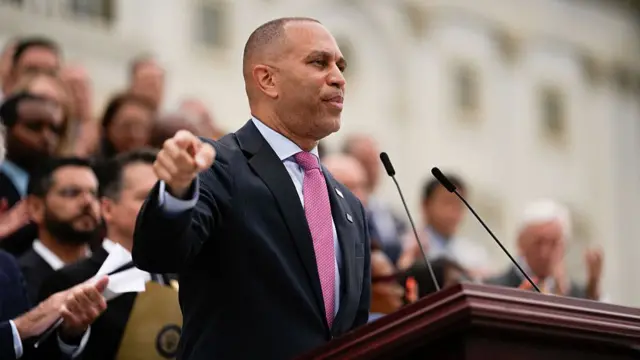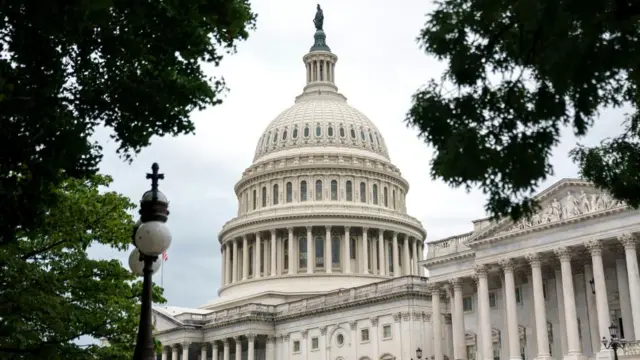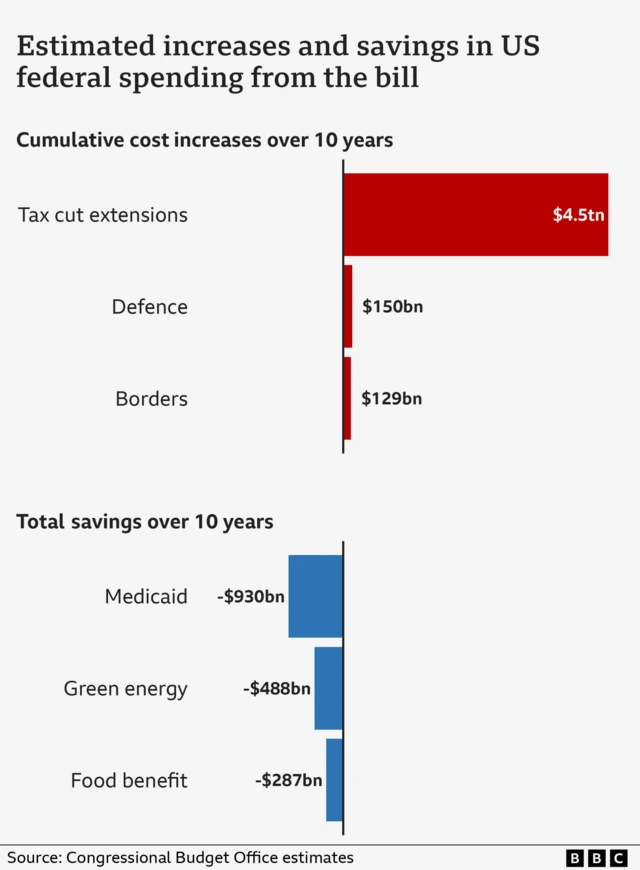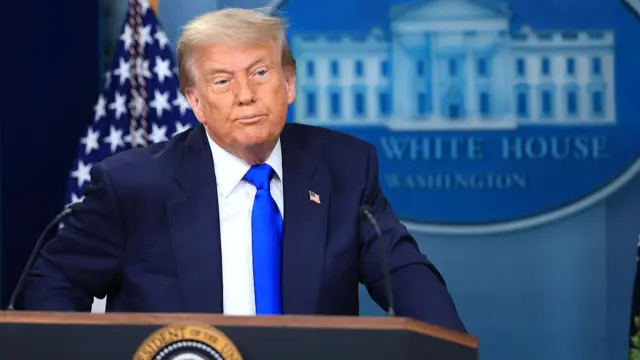Jeffries stalls vote with marathon speechpublished at 13:48 BST 3 July
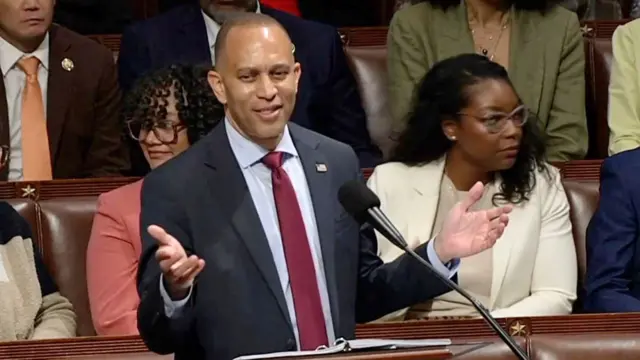 Image source, US House
Image source, US HouseDemocratic Minority Leader of the House Hakeem Jeffries is still addressing fellow lawmakers. He has been speaking for well over three hours, and will likely be up for more.
A bulk of his time at the podium has been dedicated to reading letters from Americans in each state who rely on Medicaid for health coverage.
The programme has been a point of contention for Democrats and a few Republicans who worry the bill will result in millions losing their health care.
“This is a question for so many individuals of life and death," Jeffries has warned, calling the legislation "the one big ugly Republican bill."
The House minority leader is using a rule known as the "magic minute", which gives the speaker, minority and majority leaders unlimited time to deliver a speech.

